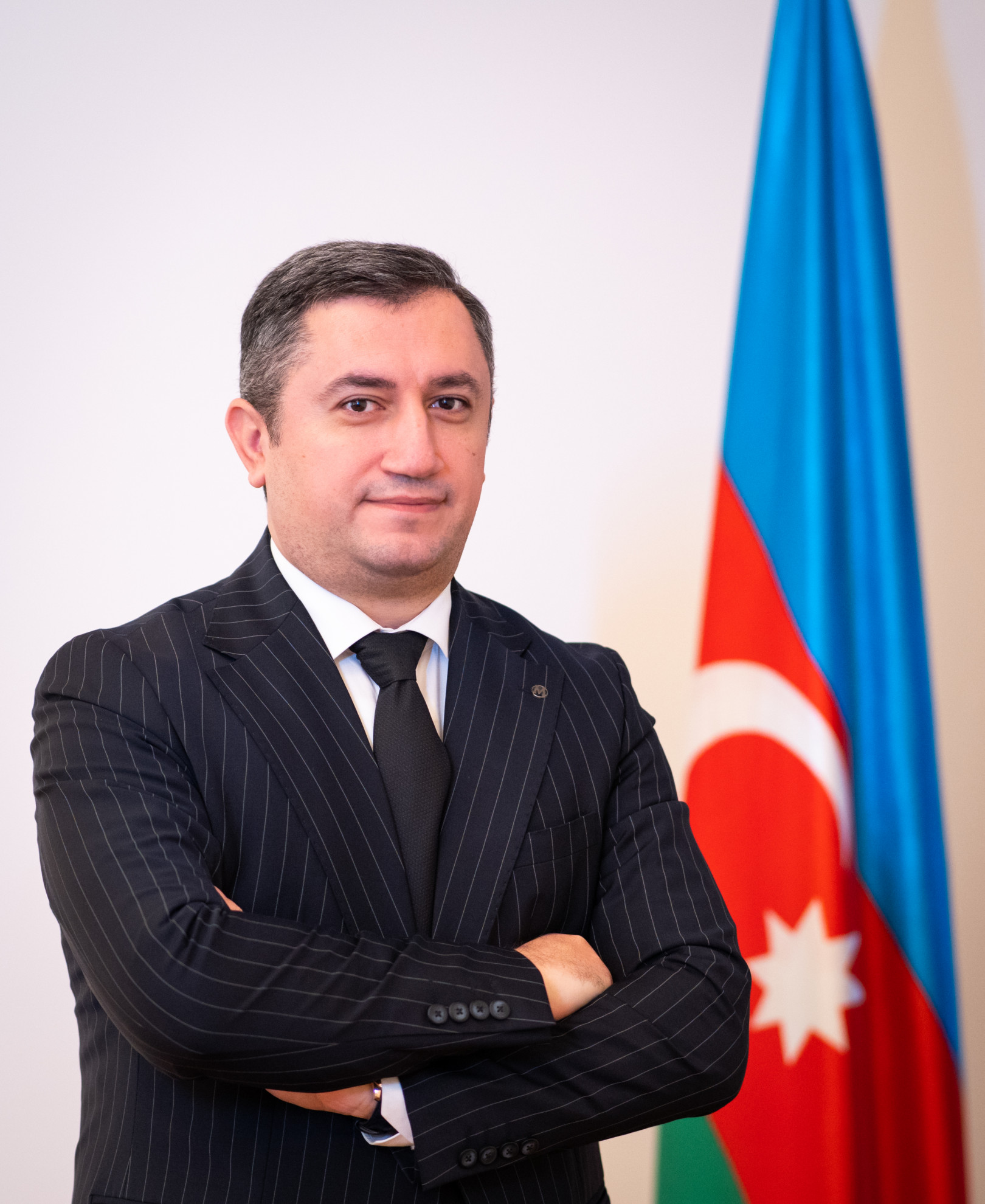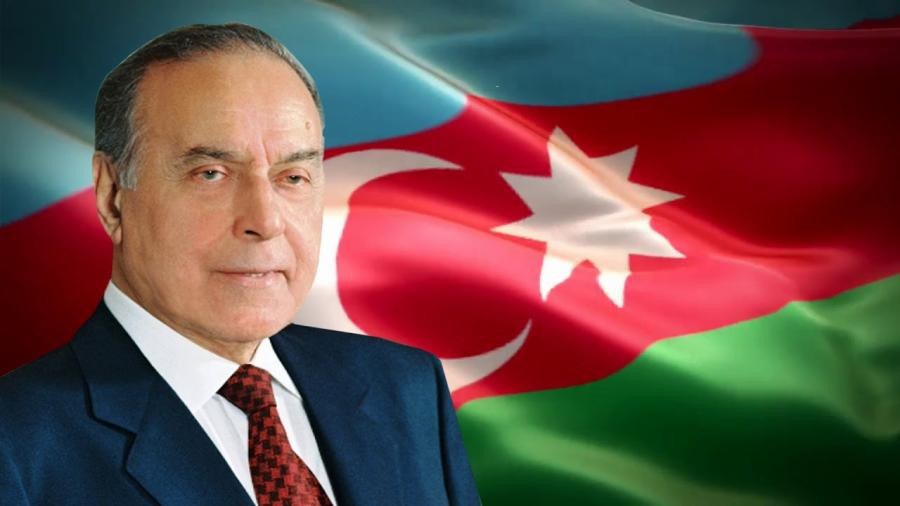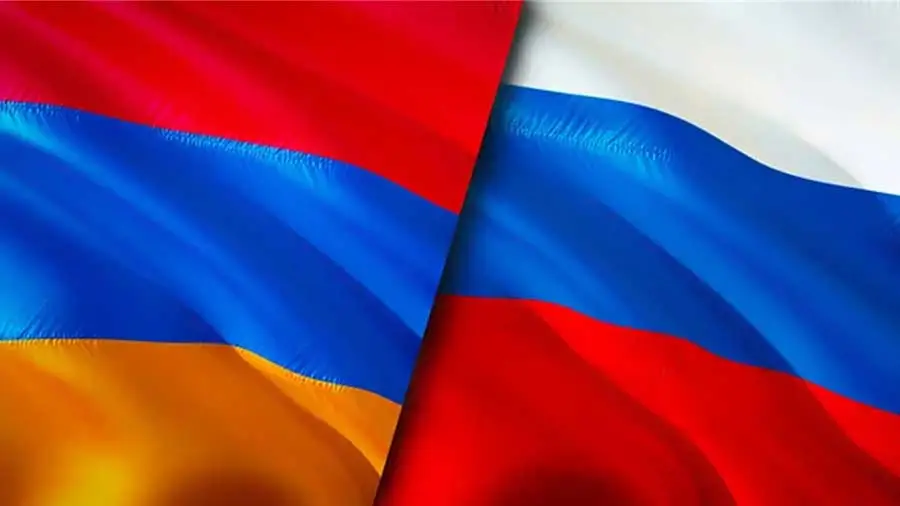One of the primary methods for ensuring the national interests, security, and overall growth of any country is regarded to be thoughtful foreign policy based on national interests. Heydar Aliyev, the nation's leader who regained office in the summer of 1993, used the aforementioned thoughtful foreign policy approach, and it significantly helped the country to recover from the crisis. Regardless of the challenging geopolitical situation, the war waged by Armenia against our country, major political-ideological, military, economic threats originating from other power centers with interests in the region and numerous internal problems, Heydar Aliyev's foreign policy based on profound reason and iron logic raised it to the status of a worthy member of the international relations system while defending the state under the risk of destruction. One may also point to Heydar Aliyev's foreign policy's distance from adventurism and any political risk taking, as well as its pragmatism and wisdom, as its key qualities.
A reasonable, practical foreign policy often addresses a number of significant issues. The factors underlying the considered foreign policy can be listed as follows: the country's history, population, economic potential, military potential, geography, geopolitical status, and, of course, the shifting nature of the world. When taking into account all of these factors, the implemented foreign policy can be considered rational or thoughtful. Heydar Aliyev, the brilliant politician who oversaw Azerbaijan from 1993 to 2003, put his foreign policy plan into action by taking into account all of the factors we previously addressed. The protection and strengthening of our independence, the neutralization of the various threats we face, the promotion of our state and the strengthening of our positions in the system of international relations by integrating it into this system, ensuring our territorial integrity and eliminating Armenian aggression are the main priorities and objectives of H. Aliyev's foreign policy, who returned to power in a rather difficult and complicated period for our nation. The main objectives of H. Aliyev's foreign policy were to establish friendly relations with all nations, particularly with the regional power centers, to take part in international integration processes, to establish global and regional security systems, and, simultaneously, to address global problems (such as the fight against terrorism, environmental protection, and so forth).
We would like to emphasize the fact that H. Aliyev's foreign policy has become even more realistic via strategic diplomacy. In order to protect our nation's interests and the interests of our state in the system of international relations, Heydar Aliyev utilized diplomacy, one of the primary tools for implementing foreign policy, with remarkable expertise. The renowned American political scientist Hans Morgenthau's opinions on diplomacy are worth mentioning here. He noted that diplomacy has four main tasks: 1) diplomacy should determine its goals, taking into account the existing and potential power to achieve those goals; 2) diplomacy should assess the goals of other states and the potential power available to achieve those goals; 3) diplomacy should determine how compatible those various goals are with each other; 4) diplomacy should apply the most appropriate methods for achieving its goals. Heydar Aliyev's use of diplomacy to advance his foreign policy shows that the former head of state conformed strictly to the four "golden rules" of diplomacy provided by H. Morgenthau. The establishment and normalization of Azerbaijan's relations with important states that have significant geostrategic interests in the region and whose interests frequently conflict with one another, as well as with other countries, were made possible by Heydar Aliyev's well-thought-out, diplomacy in line with pragmatic foreign policy.
It should be mentioned as well that Heydar Aliyev's "cross diplomacy" was a major factor in the successful partnerships he was able to forge with many power centers. We would like to point out the fact that Heydar Aliyev was a highly active diplomat during his presidency, despite the complex political, economic, and military situation in the country at the time. Statistical data on official visits, meetings, and contracts that have been signed serve as evidence. For instance, Heydar Aliyev visited 33 countries 79 times, participated in 232 events, and signed 431 documents in 1993-1998, that is, during the first term of his presidency.
From a scientific and political perspective, Heydar Aliyev's foreign policy is rightfully referred to as multi-vector, and in our opinion, it is necessary to look at the topic in a somewhat broader context, albeit briefly. The countries of the world implement specific foreign policy strategies, taking into account their national interests and other factors. These foreign policy strategies can be summed up as the following categories: Strengthening one's "own power," forming allies, minimizing risks (Strategic Hedging) and neutrality policies. From this perspective, we may assess Heydar Aliyev's foreign policy strategy as a risk reduction policy as it is seen as a multi-vector foreign policy. A risk-reduction strategy is often defined as minimization of possible losses by adopting of multi-vector policy. In order to reduce risks related to regional powers without engaging them in conflict, this method entails abandoning unilateral policies. This strategy is typically used by small countries which, for security reasons, do not wish to defend any power center. In general, reducing security risks and avoiding economic losses are the key reasons why some small countries favor a risk reduction strategy. Additionally, a large number of states actually employ this strategy in international relations. For instance, in the struggle for influence between the United States and China, certain Southeast Asian governments choose a risk-reduction policy, therefore reducing security concerns. The mentioned strategy allows them to maintain relations with both sides without being tied to one power center. A multi-vector foreign policy that Heydar Aliyev was able to successfully implement in the South Caucasus had a stabilizing and advantageous impact on the political and security environment not just of Azerbaijan but of the entire region. Heydar Aliyev's views on the country's new foreign policy after regaining power in 1993 indicated that this strategy would be multi-vectored: "Foreign policy is one of the factors that guarantees Azerbaijan's independence. To be able to ensure its recognition as an independent state on a de facto global scale, Azerbaijan should have a healthy foreign policy—one that is thoughtful, visionary, connects Azerbaijan to the global community, and ensures Azerbaijan's relations with all nations. Never before has Azerbaijan had such a solid foreign policy. Kazakhstan, Türkiye, Iran, neighboring Georgia, Russia, the United States, European countries, Arab countries, Muslim nations, Turkic-speaking nations, and countries in Central Asia should all have equal relations with Azerbaijan.”
According to the essence of the multi-vector foreign policy, Heydar Aliyev's presidency (1993–2003) established and developed Azerbaijan's relations with all of the world's power centers, neighboring and non-neighboring states, on the basis of mutual benefit. Heydar Aliyev's foreign policy placed a specific emphasis on relations with major, regional countries with influence and interests in the South Caucasus. Let's take a quick look at these relations. Heydar Aliyev placed a high priority on the brotherly Republic of Türkiye in his foreign policy strategy because of their shared ethnic heritage, shared history, and spiritual kinship. In 1994, between February 8 and 11, Heydar Aliyev paid his first official visit to Türkiye. During the mentioned visit, agreements covering various fields were signed between the two states, including the "Agreement on the Development of Friendship and Comprehensive Cooperation". The strategic partnership relations between the two countries improved significantly under Heydar Aliyev's presidency, moving from a verbal to a practical level. We feel that Heydar Aliyev's political-diplomatic legacy has a specific place on the way to this partnership since Azerbaijan and Türkiye’s relations have now reached the level of an official alliance.
Heydar Aliyev placed a high priority on relations with Russia during the early years of our independence, despite the fact that these relations were tense and contradictory. Acute issues in relations with Russia, primarily as a result of a number of well-known geopolitical and other factors, seriously jeopardized the security of our country, which had just recently gained independence and was at war with Armenia. The guiding principles of H. Aliyev's relations with Russia include awareness of the present geopolitical landscape, mutual interest reconciliation, and all of the above preserving independence, upholding crucial national interests, and accepting Azerbaijan as a partner on an equal footing. Heydar Aliyev frequently made working and official visits to Russia during his presidency. His first official visit to Russia in July 1997 is, in our opinion, the most significant one. The agreement "On Friendship, Cooperation and Mutual Security" was among the significant documents signed between the two countries during this visit. The official visit of Russian President Vladimir Putin to Azerbaijan in January 2001 also made a certain impact. In general, the agreements signed during both visits and the negotiations that took place had a big impact on how the two countries' relations improved and moved into a new phase.
The Western vector was one of Heydar Aliyev's primary foreign policy focus areas. Heydar Aliyev addressed our national interests as well as regional geopolitical processes while considering how to strengthen relations with leading Western countries. Heydar Aliyev, a figure of deep political insight, understood that the West's geopolitical and geo-economic interests in the South Caucasus must be taken seriously in order to strengthen our independence and lessen the negative effects of regional power centers implementing some neo-imperialist policies. The "Contract of the Century," the "Baku-Tbilisi-Ceyhan Pipeline," the "Great Silk Road," and other significant geostrategic initiatives implemented between 1994 and 2003 brought our country closer to the Euro-Atlantic region and boosted the geopolitical attractiveness of the South Caucasus for the West.
Relations with the United States, the greatest political, economic, and military force in the world, are among the most crucial aspects of Heydar Aliyev's multi-vectored foreign policy. Heydar Aliyev's administration set three primary goals for relations with the US: political-diplomatic, economic-energy, and security. These three areas of development led to the two countries' relations being elevated to the level of a strategic partnership. It was no surprise that President Heydar Aliyev's Joint Statement "On American-Azerbaijani Relations" signed during his first official visit to the US in August 1997 declared the Republic of Azerbaijan as strategic partner of the US. Let's also highlight that during this visit, a number of significant agreements were signed between both countries that foresee the extending their cooperation in a number of areas.
Relations with European countries became one of the other primary objectives of President Heydar Aliyev's foreign policy. Particularly, relations with countries like France, Great Britain, and Germany—the major powers of the "old world"—have moved into a new phase. It should be noted that Heydar Aliyev traveled to France for the first time on official matters in December 1993, shortly after winning the presidency. Heydar Aliyev signed the "Charter of Paris" and the "Treaty on Friendship, Cooperation and Mutual Understanding" with France during his official visit. Azerbaijan made the first significant step toward joining the European Common Security System by signing the Paris Charter. In February 1994, Heydar Aliyev paid his first official visits to Germany and Great Britain, two other major European states. Important agreements and contracts which serve as the foundation of the relations between each of those countries were signed during these visits. President Heydar Aliyev made a number of trips to other countries in the middle of the 1990s in addition to the main European nations. Likewise, countries like Bulgaria, Romania, Belgium, Poland, Norway, and the Netherlands might be taken as examples.
The Asian direction was one of Heydar Aliyev's main foreign policy focuses. The Asian vector of Azerbaijan's foreign policy includes relations with countries in the region including Pakistan, Saudi Arabia, Iran, Egypt, India, and Israel as well as political and economic powers like China and Japan. Heydar Aliyev promoted the establishment and development of the country's political, economic, and cultural relations with those Asian states which we referred to and did not during the presidency by paying them official and working visits.
Thus, Heydar Aliyev's well-thought-out multi-vector foreign policy strategy played an extraordinary role in protecting the national interests of our young, independent state in the system of international relations and ensuring its security. By creating the Azerbaijani model of multi-vector, balanced foreign policy, Heydar Aliyev laid the foundation for the successful foreign policy that will be implemented after him for years to come. From this point of view, it can be emphasized that Heydar Aliyev's rich political-diplomatic legacy played a significant role in our historical victory in the Second Karabakh War and in our taking a worthy place in the complex world order.








